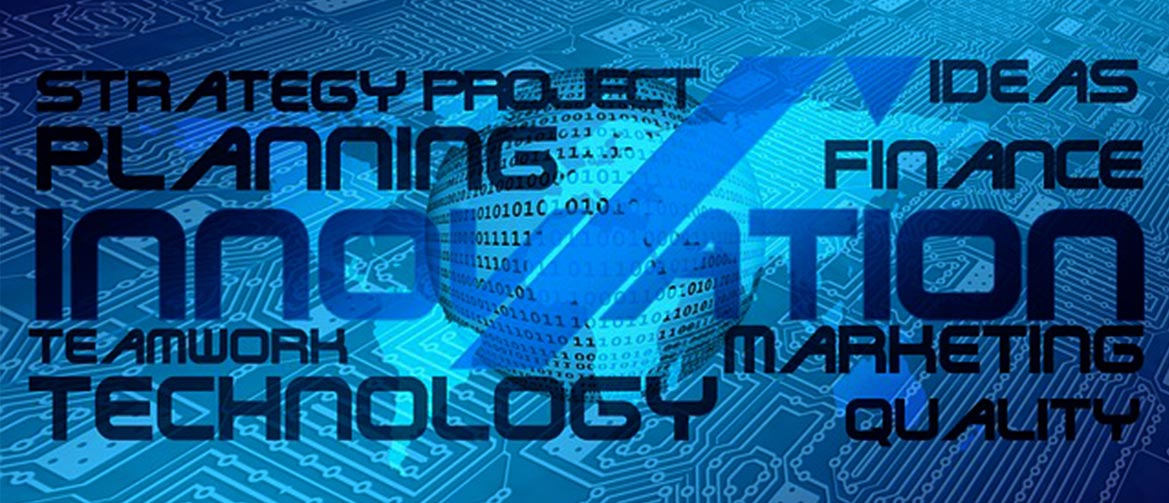Brand Equity – How can the credit function help?
Investing in Brand Equity is becoming an effective business strategy not only to retain customers and maintain competitive advantage but also to secure sound cash flow and ensure better profit.
Doing business in a hostile commercial environment, where late payment, payment defaults, bankruptcies, increase in operational cost, and most negative economic omens effecting us from abroad are the order of the day, firms should employ strategies by which they can build differentiated brand equity.
Aaker (1995) contends that brand equity has four main constituents, which include brand awareness, brand identity, brand loyalty and perceived quality.
Brand equity results in better awareness of the product and services offered by a firm, strong associations to the brand by the customer, high perception of good quality products and unique customer service. Hence, it increases customer loyalty and encourages customers to pay on time or as agreed, in order to sustain the mutual business relationship that exists between the two parties.
Therefore, if a firm wants to invest in brand equity, it is necessary to convince its prospective and existing customers that it offers the better, if not the best solutions that may be available in the market.
This entails that the firm should be customer-focused and should employ a customeroriented attitude by:
- understanding the needs and expectations of customers
- communicating with customers - and this includes listening to what the customers have to say.
- striving to meet, if not exceed, customers’ expectations.
But, isn’t it the responsibility of the manufacturing department to ensure that the firm produces the best products? Isn’t it the job of the marketing team to promote effectively the products with customers? Isn’t it the responsibility of the sales people to convince customers to buy from us and not from our competitors? Is there an opportunity for the credit function to assist in building brand equity?
The answer to these questions is ‘Yes’.
Every employee, irrespective of the function or department s/he works in, should contribute wholeheartedly to build this brand equity. And the credit team is by no means an exception – In fact, I strongly argue that the credit people have a lot to contribute in this regard.
One should keep in mind that the credit practitioners are the ones who are in direct contact with customers from the beginning up to the very end of the business transactions. Therefore, they are the employees who can foster the mutual trust, which is much valued, between the customers and the firm. Hence, the credit team can be instrumental to build the good image and the desired unique reputation in the market.
Nevertheless, the people working in the field of credit management, who really want to contribute in building brand equity, must ensure that the service they provide to customers is both Relevant and Defensible in order to differentiate it from that of the competition.
1. Relevant - The credit practitioners should always keep in mind that what they do is relevant to both their customers and to the firm they are working for.
This entails the credit practitioners to get to know their customers better and understand their needs and expectations. It also requires taking proactive credit decisions to ensure sound cash flow and secure long-term profit. Nevertheless, the internal processes and procedures should also be customer-focused.
An effective business tool that may assist firms to understand their customers better is market segmentation and this exercise should not be limited only to the marketing team but should include the credit people, since the input of the latter surely helps in identifying the most profitable target segments and niches.
Being relevant also entails the credit practitioners to evaluate the opportunity cost of granting credit. Credit does not come for free. Money costs money. The firm has to budget appropriately and have the necessary funds to grant credit. Hence, it is required to turn credit risk into credit rewards.
2. Defensible – A firm cannot sustain its brand equity and maintain competitive advantage if it lacks barriers to replication because its success will simply be duplicated by competitors. This is where the credit function has another major role to play.
The credit function is a people’s function and every person relates differently with others. Therefore, the way the credit personnel communicate and deal with their customers differ from that of their competitors and this is a form of defensible differentiation.
Therefore, the credit practitioners should be trained and skilled to be flexible in meeting customers’ needs and expectations. They should provide good customer service by which they help the firm to create a defensible image and reputation in the eyes of the customers.
It is people and people-driven processes that are the real source of building brand equity and sustaining competitive advantage – this is the reason why the credit function has an important role to play in today’s commercial world. In today’s business world, more weight should be given to the credit team and more investment in credit staff training is surely required.
You May Also Like

Why winning customer trust is key to startup success
Interview of Philipp Kristian, author of 'The Trust Economy’ What are the top three emerg...

Innovation-Driven Marketing vs. Marketing-Driven Innovation
Is your company adding value or are you pretending and trying to make a name for yourself? Why do I...

Why Is Corporate Identity Important For Any Business?
Corporate identity is quite similar to what we talk about our own identity, and the specifics that d...

Out-of-Box, In-the-Box, New-Box, Other-Box, No-Box
Thinking For years supporters and detractors of creative thinking in the workplace have talked about...

Pricing Strategy
In general, the pricing strategy is very important for retail companies in order to achieve the sale...

Why Content is the true north of Account-based Marketing? – Final
We began exploring the four-legs of the content strategy tool, and uncovered just why context is eve...

5 Trends and Challenges for the Agency Industry
One of the trends to continue will be brands bringing agency work in-house. As Ramchandani writes, &...

How to choose a domain name?
A domain name is the website name that people can type into their browser like >google.com,&...

How to promote your Business on Google Maps with Google Posts
Google has just rolled out yet another useful tool, especially for small business owners: Google Pos...

Tactics to increase conversion rate
ALPHA Sales System Most sales systems focuses on the presentation, objection handling and closing...

Challenges in Deep Learning technology
Although the estimated market growth for Deep Learning is $10.2 billion by the end of 2025, it has s...

Content Marketing Phooey
I agree "Content Marketing" is a VITALLY important component of the Promotional Mix and es...

On Becoming Customer Centric
On Becoming Customer Centric Some say “customer centricity” has become ...

It’s the stakeholder, stupid!
Why it took me four years to build a website... This week marked an important milestone in my profe...

UltraCreativity - "Cannot" does not exist in my vocabulary!
I’ve decided long ago that the word “cannot” does not exist in my vocabulary. For ...

Platforms And Content – The Business Model Of The 21th Century
Amazon is buying the rights of UEFA Championships, Disney is launching/expanding its own content pla...

Tools & Resources Every Marketer Needs To Navigate COVID-19 Crisis
It’s clear that COVID-19 has drastically altered the advertising and marketing landscape as mo...

The Hidden Truth In Creating Best Airbnb Experience
Here are Questions That I have Got This Week Around Airbnb Experience From Fellow Friends and Contac...

What is the future of Programmatic Advertising?
Data in the 21st century is like oil in the 19th century. Data is currently seen as valuable asset w...

From PR to e-PR - Future of media relations
Imagine if 20 years ago, someone told you that every organization will need accounting software, wha...

When personal brands go to war...
The start of this past weekend was highly interesting for Twitter users. It wasn’t actually a ...

Surviving and soon thriving again: what you're doing now really matters
Five weeks ago, before any of us really knew ‘how bad things would get’ I wrote on Linke...

Good Brands Sell Products; Great Brands Tell Stories
If you need to survive in this dog-eat-dog business world, then you need to connect with customers i...

Customer Experience lessons we learned and applied in our Art Gallery
WE OPENED OUR ART GALLERY IN 2011 We learned a lot of Customer Experience lessons in the 7 years si...

Why Content is the true north of Account-based Marketing? - Part I
At a recent conference, I was asked rather unexpectedly by a senior business executive, “What...

"MIND" Your Image
It’s always said, what you focus, expands! It’s pretty common for many of us to have en...

Why Content is the true north of Account-based Marketing? - Part II
"A wealth of information creates a poverty of attention." - Herbert Simon, Economist Just...

Premium Story- Customer Experience
Every three, four years I have the pleasure and privilege to choose and pick a new car. You can imag...

How to Fuel, Shape and Scale Creativity
It is well established by now that creativity is one of the main differentiators between s...

Artificial intelligence in E-mail marketing
Artificial intelligence, in the broadest sense, refers to a human-like ability to perceive, understa...

10 e-commerce user experience must-haves
They say you never get a second chance to make a first impression, and in the world of e-commerce, f...

Stop Talking About and Start Driving Digital Marketing Transformation
In marketing, and right across business, we often talk about the need for ‘digital transformat...

Want to build your personal brand? Then STOP being #antisocial on social media
Have you ever been to a networking event where you register your name, put your name card in the &qu...

9 Ways to Transform the Healthcare Experience with Conversational AI
Introduction Conversational AI is a pivotal aspect of digital transformation in the healthcare indu...








Josef Busuttil
MBA (Henley), DipM MCIM, FCICM
Josef is the Director General of the Malta Association of Credit Management and Vice President of the Federation of European Credit Management Associations. He is also a Credit Management Lecturer and Coach. He obtained his MBA from Henley Management College, Member of the Chartered Institute of Marketing (UK) and Fellow of the Chartered Institute of Credit Management (UK). He has contributed with intuitive workshops and presentations addressed to various business people worldwide. Josef is a regular contributor of business articles to business press.